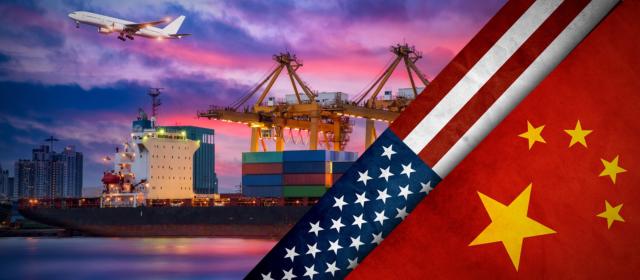There appears to be no end in sight in the U.S.-China trade war.
Since July, Washington and Beijing have levied 25 percent tariffs on each other’s goods worth $34 billion dollars, and in two weeks, each country will target another $16 billion in goods.
U.S. President Donald Trump is readying 25 percent tariffs on $200 billion worth of Chinese goods. And China said it will respond with additional tariffs on $60 billion in U.S. goods.
The U.S. tariffs on steel and aluminum imports from Canada, Mexico and the European Union are also causing ripple effects around the world. And, South Africa said nearly 8,000 jobs in the steel and aluminum industry are now at risk, and its currency, the Rand, continues to lose value.
To discuss all of this:
- Arthur Dong is a professor at the McDonough School of Business at Georgetown University.
- Robert Moran is a partner with Brunswick Insight, a consulting firm on global opinions and market research.
- Siya Biniza is a political economist and the finance and operations director at Political Economy Southern Africa.
- Manuel Suarez-Mier is a Latin America economic consultant and former chief Latin American economist for Bank of America.
For more:
As the US-China trade disagreement escalates, African countries risk getting caught in the middle of a trade war. What will the impact be? https://t.co/SL0VICoRje pic.twitter.com/ZZlWHqvLJb
— African Business Magazine (@AfricanBizMag) July 31, 2018
Soybean shipload worth more than US$20 million circles off China's coast https://t.co/ljBXdJg1Q1
— South China Morning Post (@SCMPNews) August 9, 2018
BMW feels the impact of US-China trade war – South China Morning Post https://t.co/qO8QcSdHhS
— BMW Plaza (@BMWPlaza) August 6, 2018
 CGTN America
CGTN America

